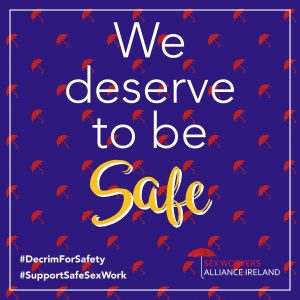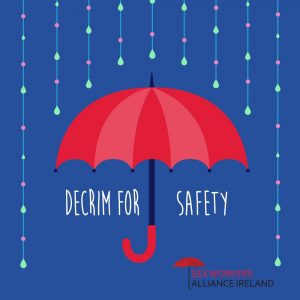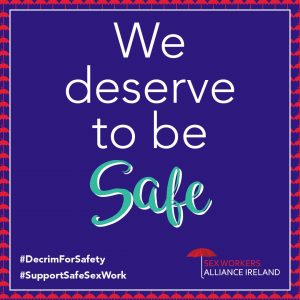Anniversary of Geila Ibram’s Murder Highlights Continued Neglect of Sex Workers’ Safety by Irish Government

As we approach the first anniversary of the tragic murder of Geila Ibram, a sex worker in Limerick, the Sex Workers Alliance Ireland (SWAI) berates the Gardaí for continued lack of contact, while violent offenders prey on this community.
Linda Kavanagh, spokesperson for SWAI said “We recently learned through the media that another predator is preying on sex workers in Ireland. We have had no contact with the Gardaí about this, despite our attempts to open up lines of communication recently. We can confirm that Ugly Mugs, a safety app used by sex workers, was also not warned. Outdoor workers, such as street workers, are sitting ducks while the Gardaí refuse to use what little safety networks sex workers have to keep them safe. Gardaí pose as clients and lie to sex workers to get access to them, under the guise of so-called welfare checks, but refuse to warn them of dangerous attackers operating in the area. No wonder less than 1% of sex workers report crimes against them to the Gardaí, compared to 81% of the general population who have trust in Gardaí. ”
Mardi Kennedy, Coordinator of SWAI condemns the Irish government’s continued neglect of sex workers’ safety and well-being. “Geila’s murder stands as a grim reminder of the dangers faced by sex workers under the Nordic Model of client criminalisation, which prioritises ideology over evidence and endangers the lives of those it claims to protect.
Despite repeated warnings from sex workers and allies during the debates surrounding the introduction of the Nordic Model in 2015-2016, the government has failed to acknowledge the real consequences of this legislation. The Nordic Model, implemented in 2017, has only exacerbated violence against sex workers, as evidenced by Geila Ibram’s tragic death and the ongoing harassment, threats, and violence faced by sex workers across Ireland.”
SWAI demands immediate action from the government to address the urgent concerns facing sex workers in Ireland. Ministerial refusal to engage with SWAI and other stakeholders, coupled with the farcical review process of sex work laws conducted by the Department of Justice, reflects a blatant disregard for the voices and safety of sex workers. The delay, lack of transparency, and failure to include active sex workers in the review process raise serious questions about the government’s commitment to understanding the impact of these laws.
Mardi continues “In areas where reform is needed, the government has a strong track record of bringing in independent experts, and these experts have produced groundbreaking and change-making reports. As a matter of principle and in the pursuit of good governance, we demand that the Department of Justice reverse its decision to finalise the sex work law review in-house. It sets an alarming precedent that will have disturbing effects for many other marginalised groups.”
Linda added “The government’s refusal to listen to sex workers and its prioritisation of ideology over evidence and research is both unfathomable and dangerous. Geila Ibram’s murder should have been a wake-up call, but instead, it seems to have fallen on deaf ears. How many more sex workers must suffer or die before the government takes meaningful action and decriminalises sex work?”
In addition to the ongoing threats and violence faced by sex workers, the criminalisation of sex work exacerbates mental health challenges, housing insecurity, financial precarity, and isolation within the sex worker community. SWAI calls for the decriminalisation of sex work as a crucial step towards ensuring the safety, rights, and dignity of sex workers in Ireland.
As we mark the anniversary of Geila Ibram, SWAI urges the Irish government to prioritise the safety, well-being, and rights of sex workers by ending the harmful criminalisation of sex work and engaging meaningfully with sex workers in policy decisions that impact their lives.

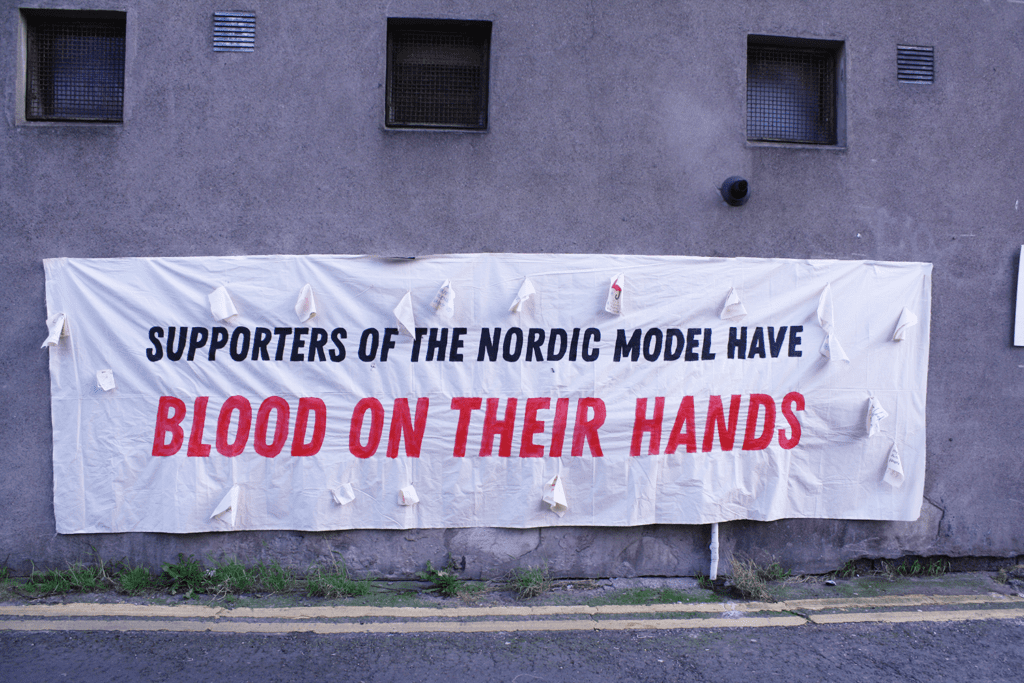

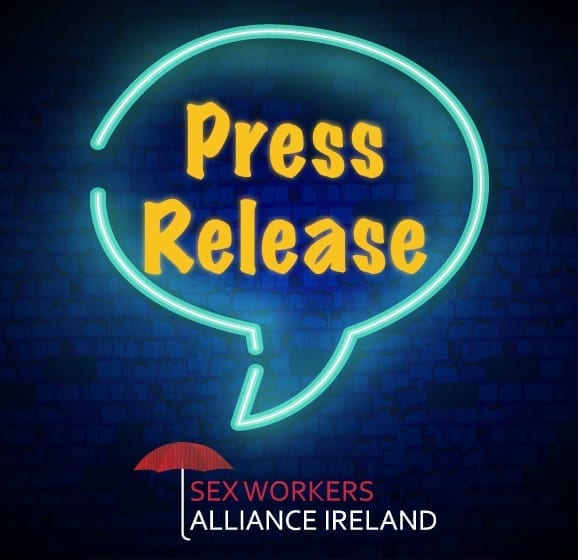
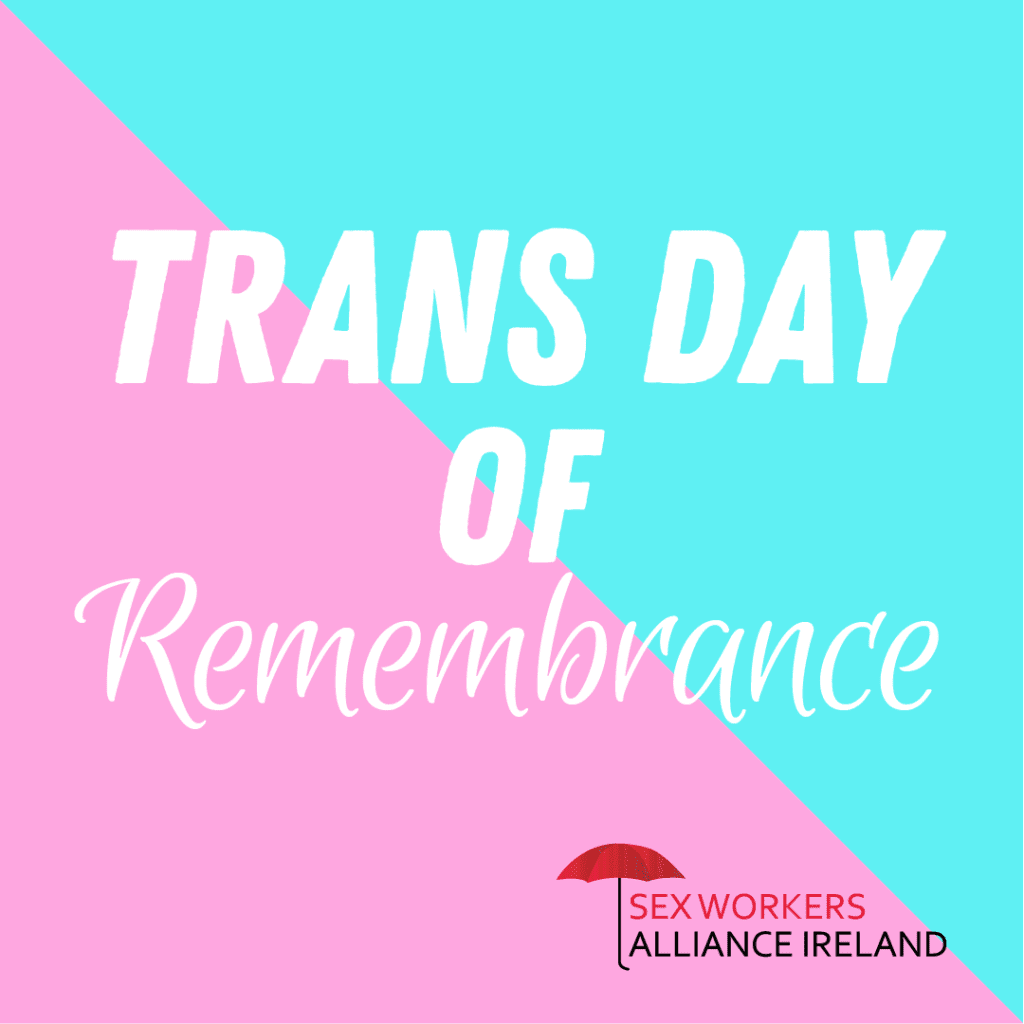
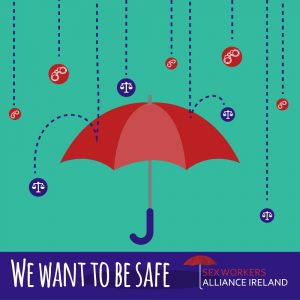 Both sex workers and Gardaí have known about these criminals for some time but sex workers refuse to contact the Garda because trust in Gardaí is at an all-time low since the law changed in 2017.
Both sex workers and Gardaí have known about these criminals for some time but sex workers refuse to contact the Garda because trust in Gardaí is at an all-time low since the law changed in 2017. 